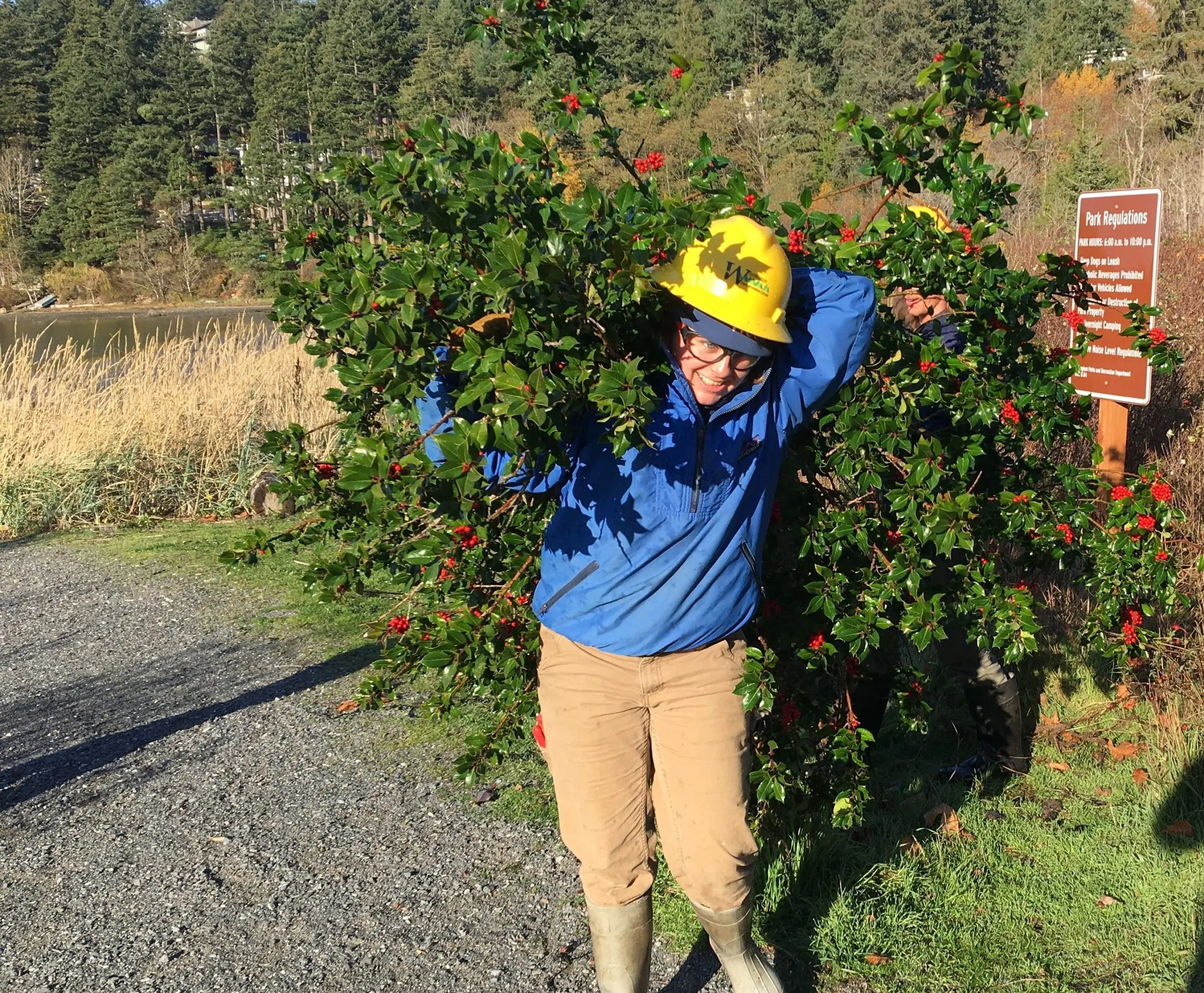The Bellingham City Council passed a resolution declaring this week to be Invasive Species Awareness Week, following a state-wide declaration made by Governor Jay Inslee.
Invasive species are non-native plants, animals, and pathogens that can displace and outcompete native species, disrupt entire food webs and damage infrastructure.
Invasive species are the second greatest threat to biodiversity worldwide. The costs to prevent, monitor and control invasive species – combined with the damage they cause – cost the nation an estimated $137 billion a year.
“The City recognizes that invasive species are harmful to our economy, environment and health,” Mayor Kelli Linville said. “We are particularly concerned about the impact that these species can have on our local water bodies. We all have a part to play in preventing and controlling the spread of invasive species that are not compatible with our local environment.”
Protecting Lake Whatcom – Bellingham’s drinking water source – from invasive species is a collaborative effort of Bellingham, Whatcom County and the Lake Whatcom Water and Sewer District. The Aquatic Invasive Species (AIS) program is a proactive effort to keep aquatic invasive species out through inspections of boats entering Lake Whatcom and Lake Samish, and a Boater Education campaign. The program costs the partners approximately $500,000 per year and is administered by the City.
“Invasive species can enter our local lakes and streams by attaching themselves to boat hulls, motors, trailers and field gear,” said Teagan Ward, the City’s Aquatic Invasive Species program coordinator. “We encourage all boaters and recreational users to help stop the spread of aquatic invasive species by cleaning, draining and drying their boats and gear before launching in our local waters.”
Results from the 2018 boating season can be found in the Whatcom Boat Inspections 2018 Annual Report and by viewing the interactive Story Map that shows the last water body visited by boats entering Lake Whatcom and Lake Samish.
The City is also dedicated to preventing and managing terrestrial invasive species through the administration of several multi-faceted programs including a Habitat Restoration program, Parks Volunteer Program and through the daily operations of the Parks and Public Works Departments crews. Since 2000, Bellingham has sponsored two Washington Conservation Corps (WCC) crews that work to remove invasive species throughout Bellingham and replace them with native species. In 2018 alone, WCC planted 27,000 native trees and maintained over 125 acres of restored habitat.
Community members can also help protect local lakes and land from invasive species by:
- Cleaning hiking boots, bikes, waders, boats and trailers, off-road vehicles, and other gear before going outdoors, to prevent spreading invasive species from one location to another;
- Identifying and managing noxious weeds on personal property;
- Boaters can complete the online AIS Awareness Course to learn important information about AIS and receive a discount on their boat inspection permit fees.
For more information about preventing the spread of invasive species, visit the Washington Invasive Species Council webpage.


